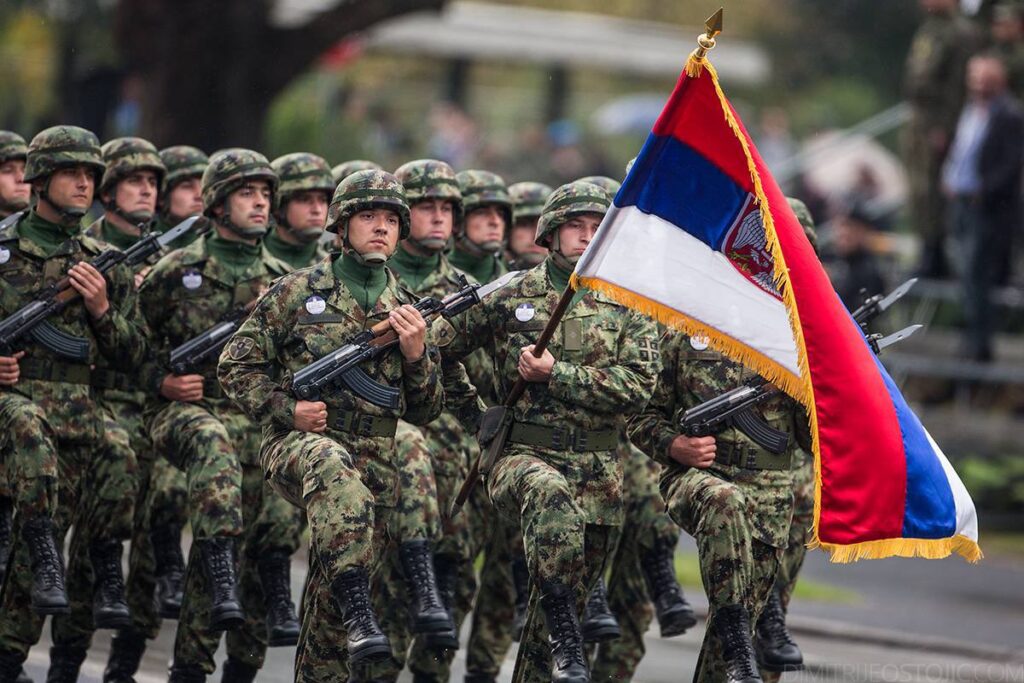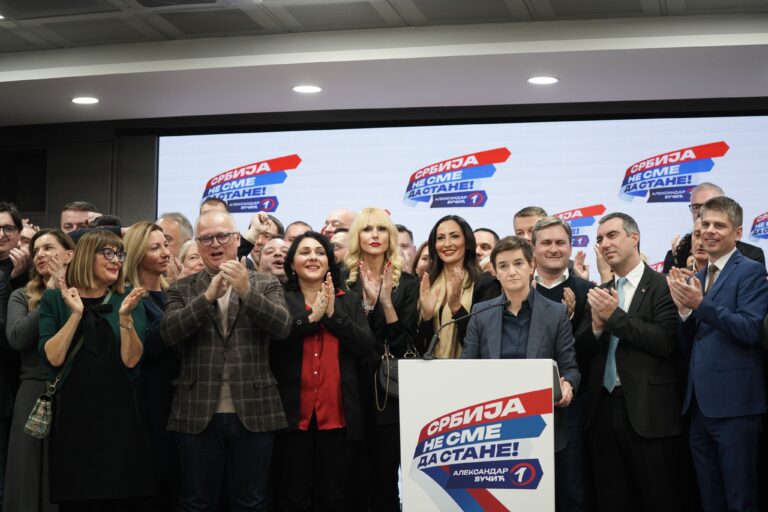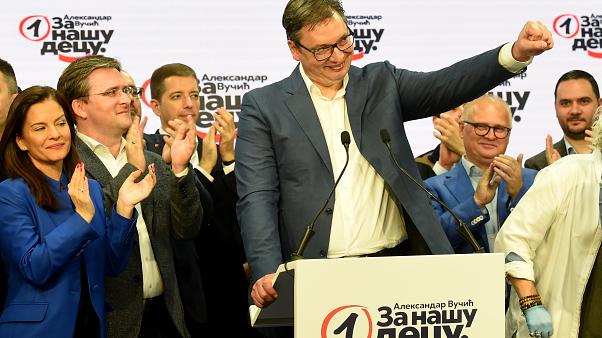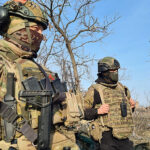The Progressive Serbian Party, commonly known as SNS and led by existing President Aleksandar Vucic, is under scrutiny for alleged manipulation of votes in the country’s recent early elections. Vucic secured approximately 47% of the overall vote in the snap parliamentary elections, granting his party around 130 seats out of the available 250. The Organization for Security and European Cooperation expressed concern about potential vote-buying and ballot-box stuffing by Vucic’s party on December 17, along with apprehensions about media manipulation during the campaign.
The opposition alliance “Serbia against Violence,” holding about 22% of the vote, is demanding the annulment of the Belgrade elections, citing accusations of blatant vote theft and manipulation. Protests urging the annulment have taken place in front of the Republican Election Commission since Monday, with opposition representatives daily voicing slogans such as “we don’t give our vote,” “the elections are stolen,” and “this is treason.”
Opponents of Serbian President Aleksandar Vucic assert that they have submitted comprehensive evidence of vote manipulation to the electoral commission. This evidence includes observations, registrations, and details on the organized influx of voters from Republika Srpska in Bosnia to participate in the snap elections in Belgrade. Miroslav Aleksic, a leader of the opposition coalition, reiterated these allegations of election fraud during an address in front of the Republican Electoral Commission building. According to Aleksic, 42,000 individuals without legal residence were systematically brought to Belgrade to support the electoral list of the SNS. ‘Serbia against Violence’ contends that 40,000 documents were issued to non-residents of Belgrade, and Serbs from Bosnia and Herzegovina were allegedly bussed en masse to vote in Belgrade.
In addition to the OSCE and the Office for Democratic Institutions and Human Rights, the German Ministry of Foreign Affairs responded through the X platform, criticizing Serbia’s election irregularities as unsuitable for a nation aspiring to join the EU. Despite historical election anomalies in Serbia, the current opposition seems more aligned with a pro-European stance and disapproves of the country’s outdated ideologies.
Nevertheless, the victory percentage of Vucic’s party (SNS) reflects the prevailing mindset in Serbia. As highlighted in a previous paper, that early elections in Serbia will only fix Vucic`s problems rather than those of the nation. Consequently, compared to the year 2022, when SNS had 44.3 percent of the votes, this party has now collected about 47 percent of the votes. Surprisingly, recent impactful events like the May mass shootings in Belgrade and widespread anti-violence protests did not contribute to the decline but rather to the rise of Aleksandar Vucic’s party.
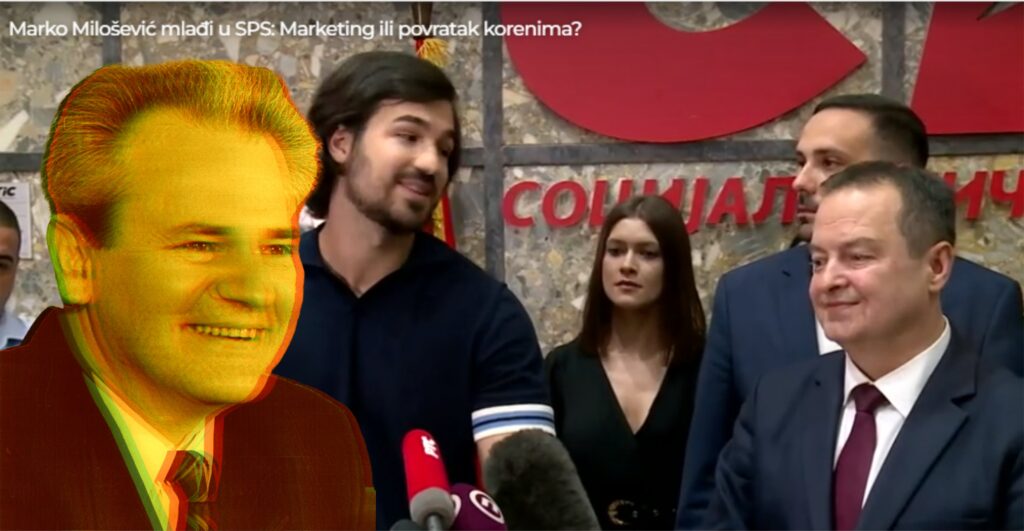
More on this story: Early elections will only fix Vucic’s problems, not Serbia’s
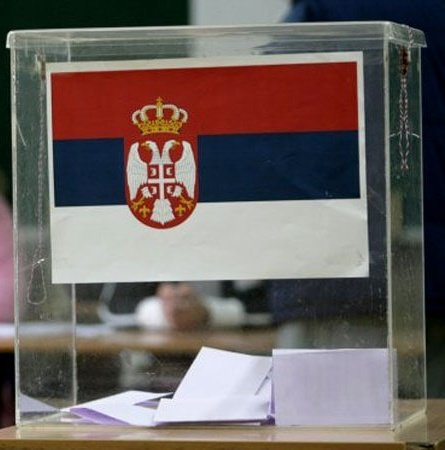
More on this story: Serbia challenges NATO, by threatening Kosovo
The SNS, the party that secured the majority in the Serbian elections, is considered by critics as the successor to the legacy of war criminal Slobodan Milosevic. Milosevic is held responsible for the Balkan wars, thousands of casualties in Bosnia and Herzegovina, and the war in Kosovo involving numerous killings and massacres. The party, led by Aleksandar Vucic, is accused not only of perpetuating a narrative of violence but also of controlling media, corruption, misappropriation of public funds, and the recent attack on Kosovo on September 24. Vucic’s past association with the Milosevic dictatorship, serving as a minister for many years, adds complexity to his political history. His victory in the snap elections reflects a shift towards a pro-Russian and anti-EU stance. Despite aspirations for EU membership, Vucic’s leadership is seen as a destabilizing force in the Western Balkans due to persistent threats of war against neighboring countries and the influence of Russia under his leadership in Serbia.
